Sex Reassignment Surgery (Male to Female) in Hungary
Search and Compare the Best Clinics and Doctors at the Lowest Prices for Sex Reassignment Surgery (Male to Female) in Hungary

Find the best clinics for Sex Reassignment Surgery (Male to Female) in Hungary
No clinics available
Thailand offers the best prices Worldwide
Price: $ 2,473

- Home
- Hungary
Compare Before & After Photos of _procedure_photos.phpSex Reassignment Surgery (Male to Female)


Front view


Front view
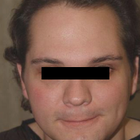

Front view


Front view


Front view


Front view

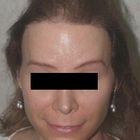
Front view
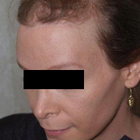

Half-side view


Front view
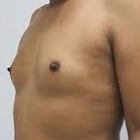

Half-side view
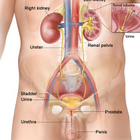
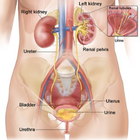
Front view
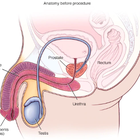
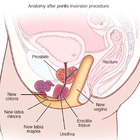
Full-side view
WHY US?
At Medijump, we're making medical easy. You can search, compare, discuss, and book your medical all in one place. We open the door to the best medical providers worldwide, saving you time and energy along the way, and it's all for FREE, no hidden fees, and no price markups guaranteed. So what are you waiting for?

Free

Best Price

Widest Selection

Risk-Free
What you need to know about Sex Reassignment Surgery (Male to Female) in Hungary

Also known as Gender Reassignment or Sex Change Surgery, Sex Reassignment Surgery (SRS) involves the surgical procedures required to change a person’s sexual characteristics from one gender to the other. The procedure can be used to transition a person from Male to Female and from Female to Male. Male to Female procedure involves reshaping of male genitals to appear and function as female genitalia (including a vaginoplasty), hair removal therapy, hormone replacement, facial feminization surgery, and Breast Augmentation.
Hormone treatment is started one year prior to surgery and continues after, where estrogen helps to reshape the body’s contours and stimulates the growth of labia majora. At least one therapist will be required to assess a patient’s psychological wellbeing before the go-ahead can be given.
The decision to have a breast augmentation should be an informed one that takes into account the potential risks and side effects. You should also have realistic expectations about the results of breast implant surgery to avoid disappointment. Find out about the procedure, the recovery period and any possible complications - ask your doctor or surgeon if you are unsure about anything.
What is the cost of Sex Reassignment Surgery (Male to Female) in Hungary?
One of the most common inquiries about the Sex Reassignment Surgery (Male to Female) pertains to its expense. The financial burden associated with the procedure may significantly impact one's decision to pursue it. Nonetheless, it's not easy to pinpoint the exact cost, given that numerous factors can influence it. In Hungary, the total cost of the procedure may fluctuate considerably based on factors like surgeon qualification, the intricacy of the operation, and the span of hospitalization, to name a few.
It's vital to acknowledge that the Sex Reassignment Surgery (Male to Female) is not a one-off event, but entails a succession of treatments and surgeries. Typically, it includes mental health sessions, hormone treatments, and several surgical procedures, all of which add to the general cost. Expenses post-surgery, such as medication, check-up appointments, possible extra surgeries, and supplementary therapies, also require consideration. Furthermore, expenses for travel and lodging in Hungary should be taken into account. For a precise cost approximation, reach out directly to the clinic.
What does a Sex Reassignment Surgery (Male to Female) Procedure Involve?
Clinically speaking, sex change operation is known as “Genitoplasty Procedure”. This type of procedure can be performed to transition an individual from female to male and from male to female.
It is very important to understand that before you undergo surgery, you will need to first transition. Gender transition is a lengthy process that requires a lot of patience and resilience. In addition, it will be of great help if you have a strong support system to back you up in times of difficulty. It’s also essential that you have a therapist to not just help you with your emotional wellbeing before and after the transition, you will also need a letter of recommendation from your therapist before your surgery.
Transitioning from male to female will involve penectomy (removal of the penis), orchiectomy (removal of testes), vaginoplasty (creation of a vagina), and feminizing genitoplasty (creation of female genitalia). During the surgery, you will be induced with a general anesthetic.
You must start hormone treatment a year prior to your surgery to help reshape your body contours and stimulate the growth of your labia majora. Hormone treatment will be continued even after your sex-change operation.
There are popular MTF sex reassignment surgery techniques which you can choose from, two of which are: sex reassignment surgery with skin graft technique - the most popular SRS procedure, vaginal depth is up to 13-15cm (5-6 in). Another is sex reassignment surgery with colon graft - suitable for people with less scrotal skin and those who prefer a lubricated vagina and is considered as the most expensive procedure.
There are other procedures that you can undergo to fully transition from male to female. These may include; breast implants, facial feminization surgery (FFS), and another procedure would be to minimize the appearance of your Adam’s apple, etc. All procedures to help one fully transition will vary on the individual’s need and of course, their budget.
Prerequisites to Surgery
- Patients must be at least 20 years old or have consent from parents / legal guardians for those between 18 and 20.
- At least 12 months of successful and continuous real-life experience living as a woman.
- At least 12 months of continuous hormonal therapy.
- Must consult with a psychiatrist in the home country and in the country where the procedure will be performed (this can be arranged in your chosen hospital in Hungary).
- Physically fit for surgery.
Popular MTF Sex Reassignment Surgery (SRS) Techniques
1. SRS with Penile Skin Inversion
- Suitable for patients who do not want a vagina for sexual intercourse, particularly popular with elderly trans people. Depth is around 2-4 cm (1-2 in) and penile hair removal is required prior to surgery.
- Surgery: 2.5 hours
- Hospitalization: 4 nights
- Recovery time in Hungary: 3-4 weeks
2. SRS with Scrotal Skin Graft
- Scrotal skin is used to create a vaginal depth of up to 13-15 cm (5-6 in), depending on skin quality and quantity (additional depth is possible by using groin skin). This is the most popular SRS procedure.
- Surgery: 4 hours
- Hospitalization: 6 nights
- Recovery time in Hungary: 3-4 weeks
3. SRS with Sigmoid Colon by Laparoscopic Technique
- The Sigmoid colon is used to create the vagina, allowing for greater depth than what is possible with SRS with a scrotal skin graft. More suited to those with less scrotal skin or those who prefer to have a lubricated vagina, like that of a biological woman. By far the most expensive technique.
- Surgery: 6 hours
- Hospitalization: 7 nights
- Recovery time in Hungary: 3-4 weeks
How Long Should I Stay in Hungary for a Sex Reassignment Surgery (Male to Female) Procedure?
A lot of patients prefer having surgery overseas since it is far less expensive and most countries, like Hungary, have a very high success rate in terms of plastic surgery and gender reassignment surgery.
Recovery after surgery will be a long and painful process. It will also require several follow up procedures as well as constant monitoring so you will have to stay a little bit longer at the hospital until you are ready to be discharged. Generally, allow for a minimum of 3 weeks stay in Hungary after your surgery, this will allow for the removal of stitches and a few weeks of follow up visits with the surgeon.
What's the Recovery Time for Sex Reassignment Surgery (Male to Female) Procedures in Hungary?
Smoking before and after the surgery is highly discouraged and avoid smoking for at least two weeks to reduce risks of non-healing.
Most people are able to return to work in about 4-6 weeks after a sex change operation. Furthermore, you can resume strenuous work and exercise after 2 months. It is vital that you strictly follow all medication instructions during your recovery period.
Keep in mind, recuperation incorporates not only physical healing but also emotional rejuvenation. The Sex Reassignment Surgery (Male to Female) implies a noteworthy modification in your way of living and acclimating to an altered body image and social identification requires patience. Mental health guidance proves to be an important element in the healing journey, offering emotional assistance and managing any mental obstacles that come up.
What sort of Aftercare is Required for Sex Reassignment Surgery (Male to Female) Procedures in Hungary?
Social support is very important before and after the surgery, especially the support that comes from your family and loved ones. You have to be socially and emotionally stable before you undergo the operation. This is why it is required that you have proper counseling to help you with your emotional wellbeing. You have to prepare yourself mentally, before, during and after transition because it can be quite overwhelming and stressful.
It is also important that you maintain a regular check-up with your local doctor to monitor the progress of your healing and avoid complications.
What's the Success Rate of Sex Reassignment Surgery (Male to Female) Procedures in Hungary?
The success rate for a sex change is very high nowadays, given technological advancements and the greater experience of surgeons. Gender reassignment surgery from male to female has a higher success rate than female to male; this is why more male transgender people opt for a sex change.
However, given the nature and complexities of this type of surgery, you also have to be aware of its complications, for example, there is always a possible risk of infection, severe pain, given the intrusive nature of the surgeries and the potential for blood clotting and scarring.
Possible side effects may also include a decreased sexual sensation and ability to orgasm, fistula (opening between rectum and vagina), narrowing of vagina and hair growth in the vagina from the grafted tissue and the partial death of tissue used to create the new vagina.
Are there Alternatives to Sex Reassignment Surgery (Male to Female) Procedures in Hungary?
There is no alternative to a sex-change operation for those who want to fully transition their body to match their gender identity. Undergoing gender reassignment surgery will require a lot of time, energy, patience, and of course money. A vast majority of people who experience gender dysphoria never really surgically alter their appearance. Instead, they use creams and hormonal pills to alter their bodily appearance. Estrogens (female hormones) will help develop the breast, widen the hips, help lose facial hair and slightly increase voice pitch.
What Should You Expect Before and After the Procedure
Prior to even undergoing the Sex Reassignment Surgery (Male to Female), those considering this option should be aware that their health care provider will necessitate a thorough evaluation phase. This is implemented to ascertain that the individual is thoroughly prepared, both physically and mentally, for the major changes that the procedure implies. The evaluation generally includes multifaceted assessments of physical and mental health, as well as evaluating certain social circumstances. The objective of these assessments is to gauge the individual's preparedness and appropriateness for the procedure.
In this initial stage, the health care provider implements a cross-disciplinary strategy, typically engaging a collaborative team made up of endocrinologists, psychologists, and surgeons. The aim is the effective provision of required hormone therapy and mental health counseling, alongside addressing any possible health-related issues. This pre-surgery stage also serves to educate and obtain consent, meticulously discussing details such as the implications, possible outcomes, risks, and difficulties related to the Sex Reassignment Surgery (Male to Female). Once approved for surgery, patients should be ready to adhere strictly to all pre-surgery directions to lessen any potential risks and complications during the process.
Post Sex Reassignment Surgery (Male to Female), patients should gear up for a substantial recovery period. This will require dedicated wound maintenance, compliance with prescribed medicines, and following specific physical limitations to assist healing. Depending on the specific nature of the surgery, some patients might also have to adhere to a vaginal dilation plan. This plan necessitates consistent use of dilators to avoid the newly created vagina from becoming narrow during the healing period.
What are Potential Risks of Sex Reassignment Surgery (Male to Female)?
A comprehensive understanding and consideration of prospective hazards and difficulties linked to Sex Reassignment Surgery (Male to Female) is vital before proceeding. As a significant surgical operation, it inherently possesses hazards such as intolerance to anesthesia, surgical infections, hematoma or blood congregating outside the blood vessels, excessive bleeding, or suturing problems. Even with the advancements in modern surgical procedures that help minimize these risks, they cannot be entirely eradicated and, therefore, must be anticipated.
The Sex Reassignment Surgery (Male to Female) encompasses elaborate and multifaceted surgeries like vaginoplasty, which have unique inherent risks. Some of these potential hazards include the possibility of diminished sexual sensitivity, complications in urinary functions, or challenges with the dimensions of the newly formed vagina. Other complications can include issues such as vaginal stenosis, a scenario where the vagina gradually shrinks and lessens over time, or rectovaginal fistula, a rare situation where a connection forms between the rectum and vagina unintentionally. Sometimes, more corrective surgeries might be necessitated due to post-surgical complications.
Popular Procedures to Combine with SRS
- Usually performed in one operation: Orchiectomy to remove the testicles and prevent further production of testosterone, Penectomy to remove the penis and Vaginoplasty to form the female genitalia
- Breast Augmentation to create the breasts, which is usually performed at a later date.
- Facial Feminization Surgery (FFS) and Tracheal Shave to help feminize the facial features and is not necessary for many patients.
- Hair Implants, Hair Removal Therapy, and Continued Hormone Replacement Therapy.
Whilst the information presented here has been accurately sourced and verified by a medical professional for its accuracy, it is still advised to consult with your doctor before pursuing a medical treatment at one of the listed medical providers
No Time?
Tell us what you're looking for and we'll reachout to the top clinics all at once
Enquire Now

Popular Procedures in Hungary
Prices Start From $69

Prices Start From $208

Prices Start From $1,945

Prices Start From $1,795

Prices Start From $889

Recommended Medical Centers in Hungary for procedures similar to Sex Reassignment Surgery (Male to Female)

- Interpreter services
- Translation service
- Religious facilities
- Medical records transfer
- Medical travel insurance
- Health insurance coordination
- TV in the room
- Safe in the room
- Phone in the room
- Private rooms for patients available

- Interpreter services
- Translation service
- Religious facilities
- Medical records transfer
- Medical travel insurance
- Health insurance coordination
- TV in the room
- Safe in the room
- Phone in the room
- Private rooms for patients available

- Interpreter services
- Translation service
- Religious facilities
- Medical records transfer
- Medical travel insurance
- Health insurance coordination
- TV in the room
- Safe in the room
- Phone in the room
- Private rooms for patients available

- Interpreter services
- Translation service
- Religious facilities
- Medical records transfer
- Medical travel insurance
- Health insurance coordination
- TV in the room
- Safe in the room
- Phone in the room
- Private rooms for patients available

- Interpreter services
- Translation service
- Religious facilities
- Medical records transfer
- Medical travel insurance
- Health insurance coordination
- TV in the room
- Safe in the room
- Phone in the room
- Private rooms for patients available

- Interpreter services
- Translation service
- Religious facilities
- Medical records transfer
- Medical travel insurance
- Health insurance coordination
- TV in the room
- Safe in the room
- Phone in the room
- Private rooms for patients available

- Interpreter services
- Translation service
- Religious facilities
- Medical records transfer
- Medical travel insurance
- Health insurance coordination
- TV in the room
- Safe in the room
- Phone in the room
- Private rooms for patients available

- Interpreter services
- Translation service
- Religious facilities
- Medical records transfer
- Medical travel insurance
- Health insurance coordination
- TV in the room
- Safe in the room
- Phone in the room
- Private rooms for patients available

- Interpreter services
- Translation service
- Religious facilities
- Medical records transfer
- Medical travel insurance
- Health insurance coordination
- TV in the room
- Safe in the room
- Phone in the room
- Private rooms for patients available

- Interpreter services
- Translation service
- Religious facilities
- Medical records transfer
- Medical travel insurance
- Health insurance coordination
- TV in the room
- Safe in the room
- Phone in the room
- Private rooms for patients available
Sex Reassignment Surgery (Male to Female) in and around Hungary
About Hungary
Positioned in the core of Central Europe and completely surrounded by land, this historically enriched nation is among the world's top 15 tourist favorites. It's a hotspot teeming with UNESCO World Heritage sites, a testament to its rich past.
The country boasts eye-catching architectural marvels and relaxing thermal baths and spas, the most talked-about amongst these being the Szechenyi baths nestled in the nation's capital, Budapest. This combination of cultural heritage and relaxation opportunities lends the country a unique charm that continually lures in visitors from around the globe.
While Hungary possesses only one facility accredited by the Joint Commission International, it leans on the trusted expertise of its local accreditation board. This board, licensed by pillars of authority such as the Hungarian Ministry of Health and the State National Health Commission and Medical Service, ensures the maintenance of high healthcare standards.
Each year sees a burgeoning number of medical tourists making the journey to Hungary. Many among them travel specifically for Sex Reassignment Surgery (Male to Female) procedures. Dental and cosmetic treatments, in particular, draw significant attention due to Hungary’s competitive pricing, often regarded as the most economical across Europe.
Popular Parts of Hungary
With less than 10 million inhabitants sprinkled across an approximate area of 93,030 square kilometers, Hungary may appear relatively modest in size. However, within its boundaries, it hosts an impressive number of UNESCO World Heritage Sites. Alongside these acclaimed landmarks, it also boasts a multitude of exquisite attractions, making it a country that belies its physical size with its magnificently rich offerings.
- Budapest is the capital of Hungary. From beautiful boulevards, extraordinary architectures, an abundance of hot springs, to sophisticated food and an electric nightlife. Budapest has everything to satisfy everyone. Castle Hill is one of the most visited places in Budapest with beautiful buildings dating back to the 14th and 15th centuries.
- Eger is known for its castle, historic buildings, and thermal baths and also for its red wine. There are many festivals and celebrations centered around wine and remember to enjoy the wine-tasting when visiting Eger.
- Debrecen is an important city in Hungarian Protestantism. The city has many religious sites and museums. Tourists should visit the Great Church, St. Anne Cathedral, and the Deri Museum. Debrecen also has a lot of bars and nightclubs.
- Siofok is located at the southern coast of Lake Balaton. The small town also has beautiful beaches, making it one of the most popular summer holiday destinations. The town has many entertainment options, tourists can spend a lovely day on the beach next to Lake Balaton or enjoy the food in beachside bars and restaurants.
- Szeged is known as ‘The City of Sunshine’ because it has wonderful weather. The city offers beautiful parks, cultural scenes, and amazing street side cafes. Szeged has a youthful vibe as it is a university town. In the summer, there are many festivals such as the Open Air Theater festival.
Weather and Climate in Hungary
Hungary is characterized by the presence of four clearly demarcated seasons.
- Hungarian summers, spanning from June to August, are typically warm and agreeable, with average temperatures oscillating between 23 to 28°C (73 – 82°F). However, mercury levels can sometimes soar as high as 35°C (95°F). Tourists are advised to opt for lightweight clothing during this period. This season generally sees a tourism surge in Hungary.
- Both spring and autumn showcase milder, comfortable temperatures. Spring, in particular, is a splendid time to visit Hungary as the country's parks and fields burst into vibrant, full bloom.
- Winter presents a stark contrast with severely cold conditions. Average temperatures fall within -3 to -7°C (27 to 19°F), and can plummet to lows of -10°C (14°F). While rural areas may not be very visitor-friendly during this time, the more prominent cities continue to offer an enjoyable experience despite the cold.
Getting Around in Hungary
Hungary has five large airports, but international flights usually land at Ferenc Liszt International Airport. The airport is still commonly called “Ferihegy.” It offers international connections mainly to Europe, Africa, the Middle East, and North America. Several budget airlines such as Wizz Air, EasyJet, and Ryanair operate many flights from this airport. Flights to/from Schengen countries use Terminal 2A (also known as the Schengen terminal), while flights from non-Schengen countries use Terminal 2B. Another year-round international airport is Debrecen International Airport. The airport serves Wizz Air and Lufthansa along with several seasonal airlines. There aren’t many domestic flights in Hungary because traveling to one city to another usually only takes three hours by train or bus.
Visitors can get into the city from the airports by bus or taxi. If you wish to travel by taxi, make sure to use regulated taxis such as Főtaxi, the company has trained and experienced drivers to ensure passengers’ safety. The fare is 300 HUF/Km (1.03 USD). A ride to Budapest from Ferenc Liszt International Airport should cost around 7200 HUF (24.8 USD).
Buses are another easy option to get to the city center. Bus tickets are relatively cheap, single tickets are 350 HUF (1.30 USD) and can be purchased at the airport post office, BKK customer points in arrivals halls, the newsagents, and from the ticket machine at the bus stops. Drivers also sell tickets for 450 HUF (1.60 USD). It is recommended to buy daily or multi-day travel-cards and passes which are valid for an unlimited number of trips within their validity periods. The multi-day pass costs 1650 HUF (6.15 USD)
Hungary has a highly developed transport system. To travel to another city, tourists can use Intercity (IC), the fastest trains that link major cities with Budapest. Buses are a more economical way to travel inter-city. Buses are efficient. Tickets can be purchased from the bus driver. Taxis are good, but make sure to always inspect the change that taxi drivers give you. Drivers commonly give tourists outdated Romanian currency that looks similar to Hungarian currency but has no value. Hiring a car is another good option if you want to travel to many destinations, most roads are two lanes and the main roads are in good shape.
Tourist Visas in Hungary
European Union, American, and Canadian passport holders can stay in Hungary without a visa for up to 90 days, as long as the passport is valid for at least three months. Citizens of EU/EEA member and 33 countries are granted visa-free entry for a maximum period of 90 days.
Hungary is also a part of the Schengen Agreement. The Schengen Visa allows the holder to travel to any member countries using one single visa. The Schengen Visa is only issued to citizens of countries who are required to obtain a visa before entering Europe. For more information:
- Visitors to Hungary must have a valid passport and proof of onward travel.
- It is recommended to have travel insurance, as it is not required by law but can be very helpful in case of an emergency.
- Visitors to Hungary should be aware of the country's currency, the Hungarian forint (HUF). The exchange rate for the Hungarian forint fluctuates daily, but it is currently trading at around 350 HUF to the US dollar.
- Most businesses and establishments in Hungary accept credit cards and debit cards. However, it is always a good idea to have some cash on hand, especially for smaller purchases and for tipping.
Additional Information
- Local Currency: Although the Hungarian government wants to use the Euro as Hungary’s currency, the official currency is still Hungarian Forint (HUF). 1 USD is equivalent to 362.80 HUF.
- Money & Payments: ATMs are easily available within the country. Hotels, shops, and restaurants accept credit cards, especially, MasterCard, Visa, and American Express. Several taxis in Budapest also accept credit cards. Many hotels and guesthouses that give their rates in euros will accept payment with euros or forint. Tipping is not mandatory but will be appreciated.
- Local Language: The official language is Hungarian. English is widely taught in schools and universities, so many young people can speak very good English. German is almost as widely spoken as English.
- Local Culture and Religion: More than half of the population follows Christianity as it is a historically Christian country. Jewish, Buddhist, and Muslim are freely practiced and are in the minority.
- Public Holidays: Hungary celebrates Christian holy days. The country hosts many annual festivals such as Hollókő Easter Festival, Busójárás, and Balaton Festival. Note that on national and public holidays, most businesses including shops and restaurants are closed. Public transportations also run less frequently.
With its stunning landscapes, laden with history and soaked in culture, Hungary truly is a gem to behold. Brimming with a myriad of delights to cater to diverse preferences, it offers everything from captivating landscapes and historical marvels to lively metropolises teeming with life, and a wealth of culinary delights. Indeed, Hungary ensures every visitor takes away an indelible wealth of wonderful memories.
Popular Searches
- Plastic Surgery in Thailand
- Dental Implants in Thailand
- Hair Transplant in Thailand
- Breast Augmentation Thailand
- Gastric Sleeve in Thailand
- Gender Reassignment Surgery in Thailand
- Laser Hair Removal in Bangkok
- Botox in Bangkok
- Dermatology in Bangkok
- Breast Augmentation in Bangkok
- Coolsculpting in Bangkok
- Veneers in Turkey
- Hair Transplant in Turkey
- Rhinoplasty in Turkey
- Stem Cell Therapy in Mexico
- Rhinoplasty in Mexico
- Liposuction in Mexico
- Coolsculpting in Tijuana
- Rhinoplasty in Korea
- Scar Removal in Korea
- Gastric Sleeve in Turkey
- Bone Marrow Transplant in India
- Invisalign in Malaysia
- Plastic Surgery in the Dominican Republic
- Tummy Tuck in the Dominican Republic
- Plastic and Cosmetic Surgery in Poland
- Rhinoplasty in Poland
- Hair Implant in Poland
- Dental Implants in Poland
- IVF in Turkey